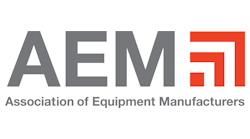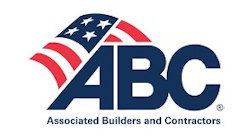Any digging or demolition job inevitably yields material mixed in size and composition. To sort such a mixture and separate its constituent elements, U-Screen Inc. of Canton, MA, makes a portable screening machine—a double-deck vibrating box powered by a Kubota diesel engine.
“It will screen anything,” says Bob DeVoe, U-Screen’s president. “When you tear down a building, it will screen small particles out of concrete. It will separate and screen aggregate and reprocessed asphalt, and separate fine topsoil from trash.
“If you’re developing a site, you take down all the trees and end up with dirt and other foreign matter. You dump this on top of the screening box, which separates out the rocks and roots, leaving you with finished topsoil to spread across the lawn and seed for grass.”
The topsoil falls through the screen; the material being removed drops off the front of the machine. Then the rocks can be rescreened and sorted by size for other uses, and the roots can be shredded for mulch. “It’s the ultimate recycling machine,” DeVoe says.
He estimates that his screener will process 300 cubic yards of topsoil per day worth $15 to $20 per cubic yard, for a daily revenue stream of $4,500 to $6,000 a day. “There’s a very quick return on your investment,” he says.
The machine costs $29,500 and weighs 6,100 pounds. It is 19.5 feet long; 6 feet, 2 inches tall; and 5.5 feet wide, and comes with wheels on the back, a pintle hook on the front, trailer lights, and electric brakes. A 1-ton truck with a strong hitch can tow it like a trailer. At a job site, a hydraulic lift powered by the engine raises the tires up off the ground.
The engine also shakes the screens back and forth. “They can go clockwise or counterclockwise,” DeVoe says. “If you’re screening a wet product, you want to discharge the wet material as quickly as possible. Putting the machine into clockwise motion allows wet material to come off quickly and prevents the screens from clogging. For dry material, putting the machine in clockwise motion holds the material on the deck a little longer.”
DeVoe laments the lack of screening in Hurricane Katrina’s wake. “The whole state of Louisiana is full of trash and debris, all mixed in with topsoil,” he says. “It’s too easy to bring in a big loader and take everything to the landfill. I’d be down there with 30 machines if I would get paid, but no money is available. It’s a shame the politicians don’t realize the importance of recycling.”
After 10 years of tweaking and making improvements, DeVoe believes his firm’s screening technology has attained its zenith. “I’ve been getting calls for a cheaper model,” he says, “but I’m not going to do it. I don’t want to produce an inferior product.”








